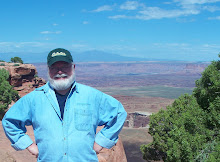In 1975, the media, the politicians and some scientists were convinced the global climate was headed for an "Ice Age." When the climate began to turn, they all agreed that further study was needed. Wouldn't that be an appropriate decision to make today, especially when the impact of an errant, albeit well-meaning, climate decision could inflict more human suffering and conflict than Co2 emissions will for the next 25 years?
Few people doubt that we need to be better stewards of our planet. Personally, I think that deforestation, particularly of the Brazilian Rainforest, is a bigger problem than Co2 emissions and has more impact on global climate, algae bloom and desert formation than Co2.
Who made the decision that Co2 was a bigger problem than deforestation? A committee from the United Nations? Al Gore?
Fact: The Polar Bear Population is the same today as it was in 1975.
Fact: Greenland was so named by the Vikings in the 11th Century because it was lush enough then to grow crops and not covered by ice as it is today.
Fact: The "Hockey Stick" proof to Climate Change was disproved in 2006.
Fact: The release of the Emails from East Anglia University show that the Climate Scientists there and in the United States manipulated their data to fit their conclusions.
Is it possible that those gathered in Copenhagen Denmark are working from flawed assumptions? Is it possible that in the hysteria of "saving the world," these 16,500 are all behaving like lemmings running off a cliff?
Is it possible that the dimension and scale of this Co2 scare is incorrect?
Is it possible that a tragic new chapter of Hans Christian Andersen's tale, "The Emperor's New Clothes" is being re-enacted in his beloved Copenhagen?
"Everyone said, loud enough for the others to hear: "Look at the Emperor's new clothes. They're beautiful!" "What a marvellous train!" "And the colours! The colours of that beautiful fabric! I have never seen anything like it in my life!"
They all tried to conceal their disappointment at not being able to see the clothes, and since nobody was willing to admit his own stupidity and incompetence, they all behaved as the two scoundrels had predicted.
A child, however, who had no important job and could only see things as his eyes showed them to him, went up to the carriage.
"The Emperor is naked," he said.
"Fool!" his father reprimanded, running after him. "Don't talk nonsense!" He grabbed his child and took him away. But the boy's remark, which had been heard by the bystanders, was repeated over and over again until everyone cried:
"The boy is right! The Emperor is naked! It's true!"
The Emperor realized that the people were right but could not admit to that. He thought it better to continue the procession under the illusion that anyone who couldn't see his clothes was either stupid or incompetent. And he stood stiffly on his carriage, while behind him a page held his imaginary mantle. "~ From "The Emperor's New Clothes" by Hans Christian Andersen, 1837,
"Fairy Tales For Children"



































